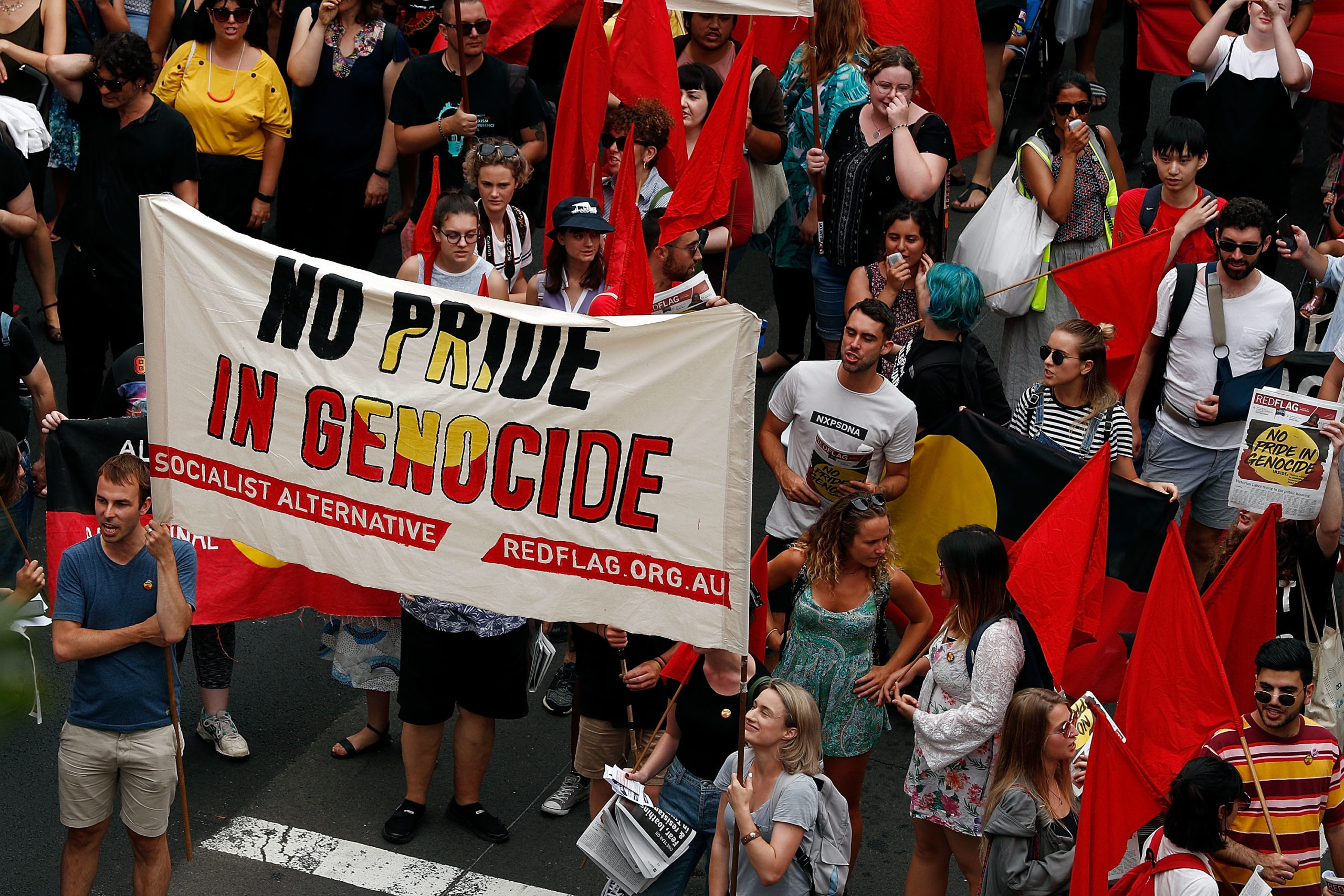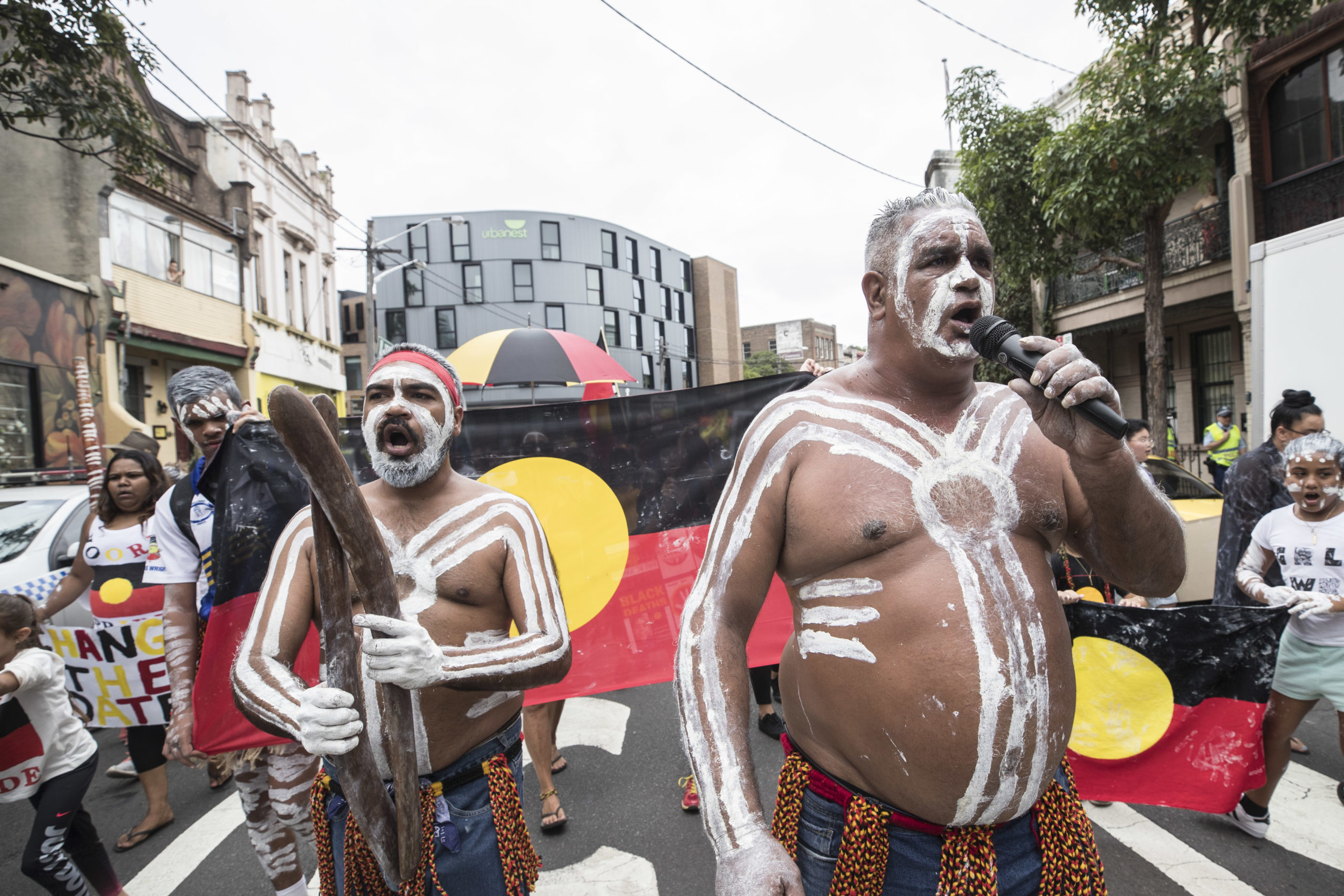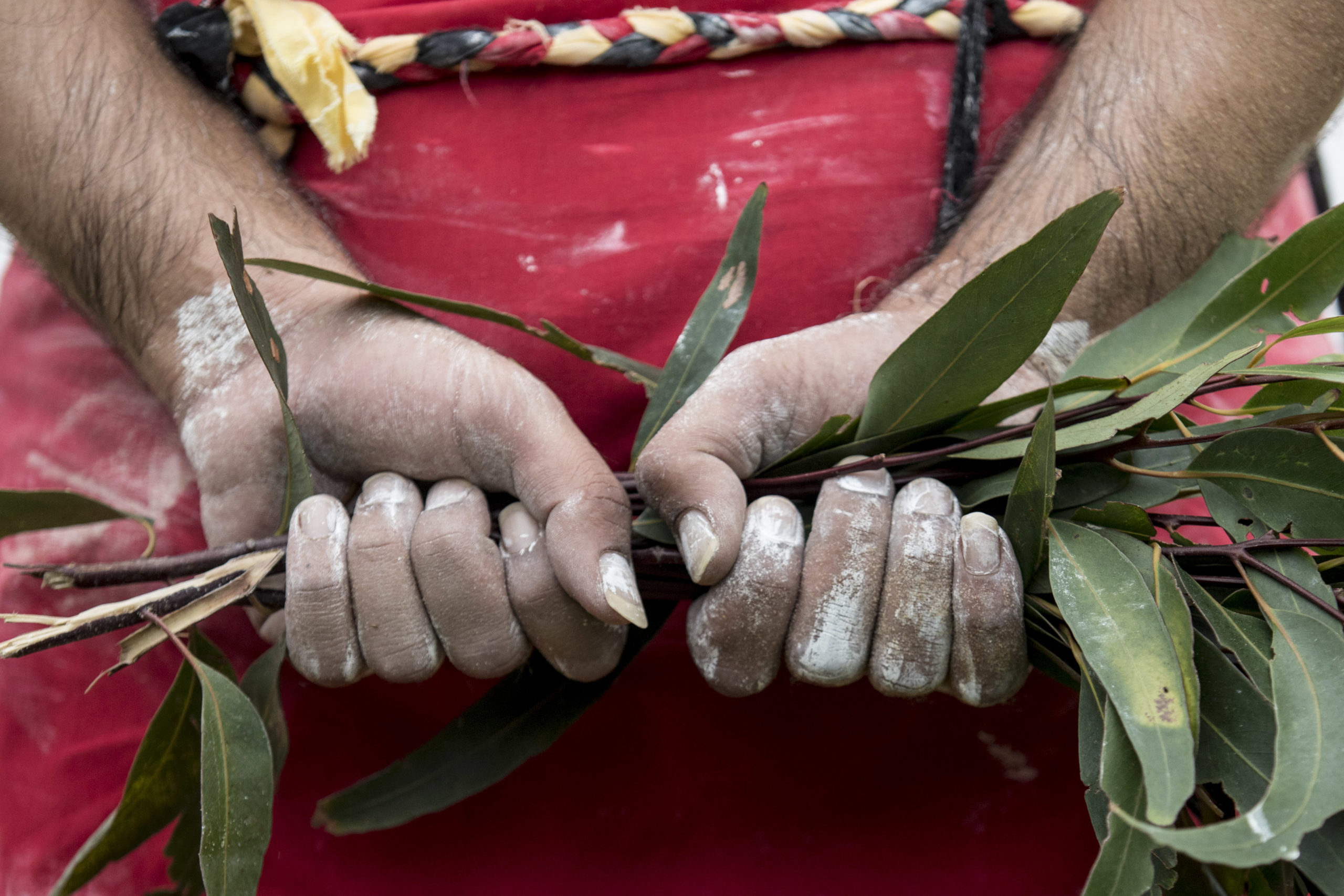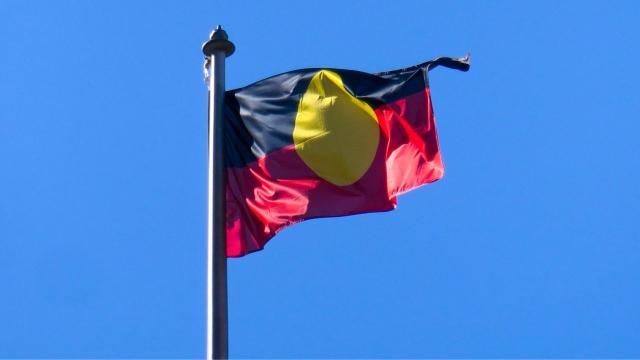I would like to start this article by acknowledging the traditional custodians on the land on which I write and on which you read. I give thanks to the elders past and present and I acknowledge any of my First Nations mob who might be reading this.
I also want to acknowledge my ancestors, whose strength to survive fuels my passion to write and truth-tell. It is my duty as a young Indigenous person to help carry my culture on and break down harmful stigmas. This is one way I can achieve that.
As Indigenous people, seeing others celebrate January 26, Invasion Day, gets more painful as the years go on. It’s particularly painful when the people you see celebrating are considered friends. Folks who seemingly support you 364 days of the year — just not this particular date.
Every year, we have to witness media outlets, social media accounts, people in the street, and our friends argue about January 26. We have to see and hear vile comments made about us and our culture.
So today, I want to talk about how celebrations on January 26 makes some young Indigenous people feel. Myself included.
I want to illustrate how deeply troubling it is when we watch people we know ignorantly post snapshots of their pool parties while covered in Australian tattoos, screaming “Aussie, Aussie, Aussie”.
They do this knowing their Indigenous friends are silently watching along. They know what January 26 means to us. And yet, for whatever reason, they post about it.
If you’ve never been told, this is how it feels
For me, Invasion Day brings an uneasiness into my body I cannot entirely put into words.

I feel it when I wake up on January 26 and it lingers in my body long after I fall asleep that night.
I know I should avoid social media when the day rolls around, but it’s hard to do. I know that I’ll see things that will upset me, and yet I can’t keep away.
The comment sections (which need to be avoided at all costs) are always filled with an obscene amount of people who feel the need to air their racist and outdated opinions.
My timelines and feeds are always flooded with posts that try to foster a debate around whether we should celebrate Australia Day on January 26. Most of these debates are created by non-Indigenous people under the guise of wanting to state an ‘open conversation’.
These types of posts baffle me. If you know the significance of January 26 then there is no debate. There is no playing ‘devil’s advocate’ when it means one side of the coin has to justify their pain while the other just wants to party.
Indigenous people do not need to ask the question nor discuss the answer — we already feel it deep in our souls.
What hurts more, however, is seeing my friends proudly broadcast their Australia Day celebrations on social media.
I’ve assumed in the past, perhaps naively, that those who considered themselves to be my friends wouldn’t want to celebrate a day like this.
I, unfortunately, am always proven wrong.
It’s one thing to celebrate it. It’s an entirely different thing to post about it. Once someone has posted it, it shows to the rest of us that they’ve gone out of their way to make it public that they are getting drunk on a day of mourning.
They don’t look cool or carefree doing it; they look ignorant and inconsiderate.
As Tyren, a 23-year-old Gamilaraay man, shared with me:
“January 26 is a sad day for Indigenous people. We see this as a day of mourning for our people as it represents 200-plus years of oppression. We think of all of our ancestors who suffered due to colonisation. When I see my friends celebrate this day, I feel frustrated and sad as I see it as a day to be respectful and mournful, not [one] to be celebrated.”
The pain of January 26
For full disclosure, while growing up, I would go to Australia Day parties, too. Mostly because I was too afraid of losing friends and missing out. I was scared that my friends would think differently of me if I spoke out about the meaning of January 26.
I was worried that expressing the pain of the day would make them feel bad.
Instead, I just ended up feeling uncomfortable being there. I felt uneasy and wrong.
I know I was still a child who didn’t yet realise the gravity of the situation. Yet, I still carry a tremendous amount of shame for having been to those parties.
And this shame is not isolated to just me. Many Indigenous people have had to swallow their thoughts about January 26 as children; frozen by the fear of being socially rejected because of who they are.
For Zoe, a 24-year-old Anaiwan woman, it was through truth-telling about what the day represents to our mob that set her free from the pressures of celebrating January 26 and the belief that it’s just a day to party with friends.
“I can see now the shadow cast by intergenerational trauma suffocating the space where intergenerational wealth should be.” Zoe said.
“I learnt through truth-telling that my story is connected to the history of my ancestors. It’s connected to the history of colonisation.”
What has taken me, and Zoe, a while to realise is that us feeling the need to celebrate January 26 in order to fit in is a direct consequence of colonisation.
Feeling almost forced to deny our culture and the pain we feel just so we can drink a few beers with everyone else and fit in is not something new.
Today, we are not children. It is far too late to say in 2024 that you are unaware of what this day represents.

I understand that for many, January 26 is a time that they can get their citizenship. Receiving citizenship status in a new country is a beautiful thing that definitely deserves to be celebrated.
But citizenship ceremonies happen every day and having the most significant ones tied to January 26 feels icky to me.
The idea of celebrating citizenship in a country that tries its hardest to keep its doors closed to refugees and people seeking asylum on a day that symbolises the loss of Indigenous culture is gross to me.
To me, it reads as a ploy to silence the cries our people have been screaming out for decades, demanding that we be treated as equal humans, under the broken guise of multiculturalism.
It’s a cheap way to conjure up the argument that Indigenous people don’t want citizenship ceremonies because we don’t want there to be an Australia Day.
This could not be further from the truth.
While I only speak on behalf of myself, I want to make this point clear. I, as well as many other First Nations people, want to celebrate the beautiful land that we are on, and want to celebrate it together.
It makes sense for us to want to celebrate this land. Our ancestors protected, cared and nurtured this land long before settlers came. They taught their children Dreaming on this land. This country is special to us and we want to invite others to feel its power. But when this land is celebrated on a day that signifies the start of brutal violence, we can’t do that.
As Zoe pointed out to me, when people celebrate January 26 it positions colonisation as a beacon, not as a means of genocide. To us, you’re celebrating a settlement of our country, not ignoring the destruction of our homeland. More importantly, you are flying a flag that was only just freed from copyright restrictions.
Something I think about often is that we lost our people in the wars of invasion, too. Yet where are our national days of mourning like ANZAC Day?
From the whole Gallipoli campaign, there were approximately 26,111 Australian casualties, including 8,141 deaths.
While these numbers are only estimations, it is believed that approximately 20,000 Indigenous people were killed during the Australian Frontier Wars. Further historians and researchers believe that number could be anywhere between 30,000 and 60,000.
It’s not my intention here to compare wars or to have a contest measuring how many people died. War is a horrible and disgusting consequence of power, greed and corruption and it should never be celebrated. Any life lost at the hands of war and violence is a deeply disturbing thing.
But statistics like these are a useful way of illustrating the broader picture. They’re a tool Indigenous people can use to tell parts of our history that have been forgotten or re-written.
So I ask again: why do we celebrate January 26 when it signifies the start of our blood being spilt on the land that gave us life?
For Indigenous people, we have an inextricable bond to the land. It births us, protects us, raises us and provides for us. In turn, we take care of it and we nurture it. Once we die, our spirits go back into country.
Through this connection, we can feel the land as it is destroyed; we share that pain. So when our ancestors’ blood was splattered across this country, it stained. The land feels our sadness. It mourns with us.

We still see those stains today. We see you as you dance to Jimmy Barnes and drink beers on those stains.
January 26 isn’t just symbolic of the start of the destruction of our culture. For Ally, a 21-year-old Gamilaraay woman, it also marks the date of the Waterloo Creek Massacre of 1838.
On this day, police and settlers massacred Gamilaraay men, women and children near Moree, Ally’s hometown.
“This day is a reminder that lives were violently taken by the hands of the settler colony and is a day of mourning,” she said.
This is why it is so deeply troubling to us when we see people we know, friends and sometimes extended family, celebrate on January 26.
When asked what she feels when she sees friends celebrate this date, Ally simply said she knows they’re no longer people she wants to be around.
“I don’t want to be friends with, or see people on my social media who celebrate a day that marks the beginning of genocide and suffering for my people,” she says.
“I don’t have the time or energy to deal with those who celebrate that day.”
It’s not our responsibility to teach people why it’s wrong anymore. We are beyond that point. It is every individual’s responsibility to learn why January 26 is not a date to celebrate.
I also think it’s appropriate to remind everyone that the First Fleet first arrived in Australia in 1788 — 236 years ago. Indigenous Australians have occupied this land for over 65,000 years.
You came into our home, onto our land. You did not treat our people with respect, and you still don’t.
Our people are dying in custody, our children are still being taken away from their families, our land is being destroyed, we still have the highest incarceration rates in the country, and we don’t have a constitutional voice in parliament.
Celebrating January 26 only deepens the ‘Us’ and ‘Them’ narrative.
Always remember: the sovereignty of this land was never ceded. It always was, and will always be Aboriginal land.
To find some brilliant Indigenous creatives and entrepreneurs to follow on Instagram, check out our list.
Lead Image Credit: iStock
This article has been updated for 2024.

Leave a Reply
You must be logged in to post a comment.